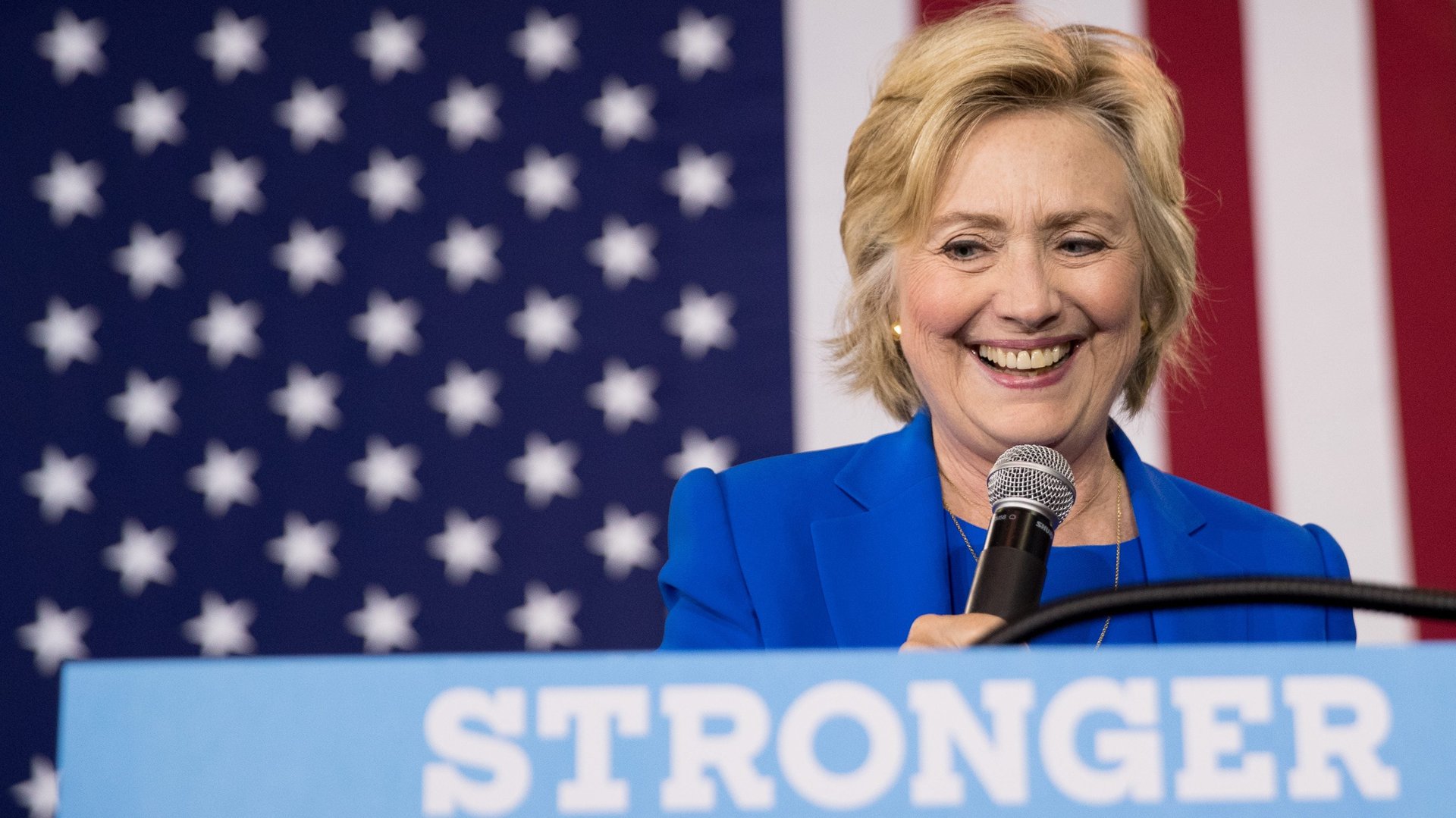There’s a reason the media is being much tougher on Clinton than Trump
Hillary Clinton is ill. She has pneumonia, according to her doctor. She is resting at home and impatient to get back on the campaign trail, she says.


Hillary Clinton is ill. She has pneumonia, according to her doctor. She is resting at home and impatient to get back on the campaign trail, she says.
But does she actually have pneumonia? Or is she having epileptic seizures? What if she has already died, and an impersonator has taken over?
The media speculation on Clinton’s health during the past couple of days has reached unprecedented levels–with the exception, of course, of the attention paid to her email scandal. Much of it is fueled by conspiracy theory chatter among alt-right websites that eventually grows loud enough to attract the attention of the mainstream media. That draw–of mainstream reporters to fringe ideas–can be explained by the very nature of conspiracy theories: they tend to target the establishment, and no one is more establishment than Hillary Clinton. Even a debunking of alt-right ideas gives them a sort of credibility, in the mere fact that they have become a topic of broad discussion.
Our gawking at these conspiracy theories begets another phenomenon: the media scrutinizes Hillary Clinton far more than they do Donald Trump.
For example, on Sep. 7, during NBC’s Commander in Chief forum, for instance, both Clinton and Trump were supposed to be answering questions about their fitness to lead the US military, but while Clinton was also grilled by Matt Lauer about her email scandal, Trump received a much less rigorous interrogation from the Today Show host.
There are several reasons for this difference in treatment.
Sexism is one: Clinton is still struggling to fight the perception that she is not “presidential,” or that she lacks charisma, something that is rooted in the many ways in which being a female candidate makes her, for some people, uncomfortable and confusing to deal with.
Donald Trump’s personality is another: With a rival who is so flippant and resistant to any accountability, Clinton remains as the only candidate who can legitimately interact with the press. The media is increasingly numb to Trump’s outrageous, incendiary, and dangerous statements, due to the frequency and regularity with which he recites them.
But there may be another reason Clinton is held to a higher standard: the press essentially thinks she will win. Therefore, they pay more attention to her and take her more seriously than they do Trump.
“The media is strategic in who they cover,” Seth Masket, professor of political science at the University of Denver, told Quartz, “they will spend their time scrutinizing candidates who they expect to do well, or are easier to research.” Clinton, who is the frontrunner and whose politics track record extends through decades of public service, fits both criteria.
Masket also says research on previous elections should be encouraging for Clinton. “The candidates who tend to do well had the worse media coverage,” he explains. The press focuses their energies on them, foreseeing their victory, because, frankly, “the tone of the coverage doesn’t switch voters’ minds very much,” Masket says.
However, this election is unquestionably different from every previous one. It may be the most important election in US history. So might Masket’s theory also play out differently this time? On one hand there is a candidate like Trump, who he describes as “a product of the media.” On the other is a candidate who is fighting negative perceptions and rabid conspiracy theories, while also under constant media scrutiny for some very real flaws.
Could the press actually end up helping Trump gain votes, by over-scrutinizing Clinton and allowing her opponent’s Big Lie strategy to play out? “I am honestly not certain,” says Masket. With just 54 days to the election, we will all find out soon enough.